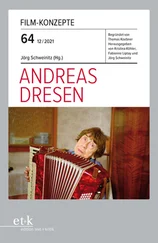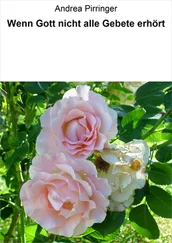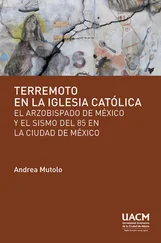thank my sisters, these particular women whose work
has contributed so much to my own consciousness and
resolve — Kate Millett, Robin Morgan, Shulamith Firestone, Judith Malina, and Jill Johnston.
I also thank those others who have, through their
books and lives, taught me so much —in particular,
Allen Ginsberg, James Baldwin, Daniel Berrigan, Jean
Genet, Huey P. Newton, Julian Beck, and Tim othy
Leary.
I thank my friends in Amsterdam who were family
for the writing o f much o f this book and who helped
me in very hard times.
I thank Mel Clay who believed in this book from its
most obscure beginnings, the editors o f Suck and in
particular Susan Janssen, Deborah Rogers, Martin
Duberman, and Elaine Markson who has been wonderful to me. I thank Marian Skedgell for her help and kindness. I thank Brian Murphy who tried to tell me a
long time ago that O was an oppressed person. Chapter
3 is dedicated to Brian.
I thank Karen Malpede and Garland Harris for their
support and help. I thank Joan Schenkar for pushing
me a little further than I was willing, or able, to go.
I thank Grace Paley, Karl Bissinger, Kathleen
Norris, and Muriel Rukeyser. Without their love and
friendship this work would never have been done.
Without their examples o f strength and commitment,
I do not know who I would be, or how.
I thank my brother Mark and my sister-in-law Carol


28
Woman Hating
for their friendship, warmth, and trust. And I thank
my parents, Sylvia and Harry Dworkin, for their devotion and support through all these years, which must have seemed to them interminable, when their daughter was learning her craft. I thank them for raising me with real caring and tenderness, for believing in me so
that I could learn to believe in myself.
Andrea Dworkin
New York City , July 1973


Part One
THE FAIRY TALES
You cannot be free if you are contained
within a fiction.
Julian Beck, The Life of the Theatre


Once upon a time there was a wicked witch and her
name was
Lilith
Eve
Hagar
Jezebel
Delilah
Pandora
Jahi
Tam ar
and there was a wicked witch and she was also called
goddess and her name was
Kali
Fatima
Artemis
Hera
Isis
Mary
Ishtar
and there was a wicked witch and she was also called
queen and her name was
Bathsheba
31


32
Woman Hating
Vashti
Cleopatra
Helen
Salome
Elizabeth
Clytemnestra
Medea
and there was a wicked witch and she was also called
witch and her name was
Joan
Circe
Morgan le Fay
Tiamat
Maria Leonza
Medusa
and they had this in common: that they were feared,
hated, desired, and worshiped.
When one enters the world of fairy tale one seeks
with difficulty for the actual place where legend and
history part. One wants to locate the precise moment
when fiction penetrates into the psyche as reality, and
history begins to mirror it. Or vice versa. Women
live in fairy tale as magical figures, as beauty, danger,
innocence, malice, and gr eed.In the personae of the
fairy tale —the wicked witch, the beautiful princess,
the heroic prince —we find what the culture would have
us know about who we are.
The point is that we have not formed that ancient
world —it has formed us. We ingested it as children
whole, had its values and consciousness imprinted on
our minds as cultural absolutes long before we were in
fact men and women. We have taken the fairy tales of


Woman Hating
33
childhood with us into maturity, chewed but still lying
in the stomach, as real identity. Between Snow-white
and her heroic prince, our two great fictions, we never
did have much o f a chance. A t some point, the Great
Divide took place: they (the boys) dreamed o f mounting
the Great Steed and buying Snow-white from the
dwarfs; we (the girls) aspired to become that object o f
every necrophiliac’s lust —the innocent, victimized Sleeping Beauty, beauteous lump o f ultimate, sleeping good.
Despite ourselves, sometimes unknowing, sometimes
knowing, unwilling, unable to do otherwise, we act out
the roles we were taught.
Here is the beginning, where we learn who we must
be, as well as the moral o f the story.


C H A P T E R 1
Onceuponatime: The Roles
Death is that remedy all singers dream of
Allen Ginsberg
The culture predetermines who we are, how we behave,
what we are willing to know, what we are able to feel.
We are bom into a sex role which is determined by
visible sex, or gender.
We follow explicit scenarios of passage from birth
into youth into maturity into old age, and then we die.
In the process of adhering to sex roles, as a direct
consequence o f the imperatives of those roles, we commit homicide, suicide, and genocide.
Death is our only remedy. We imagine heaven.
There is no suffering there, we say. There is no sex
there, we say. We mean, there is no culture there.
We mean, there is no gender there. We dream that
death will release us from suffering—from guilt, sex,
the body. We recognize the body as the source of our
suffering. We dream of a death which will mean freedom from it because here on earth, in our bodies, we are fragmented, anguished—either men or women,
bound by the very fact of a particularized body to a role
Читать дальше
























